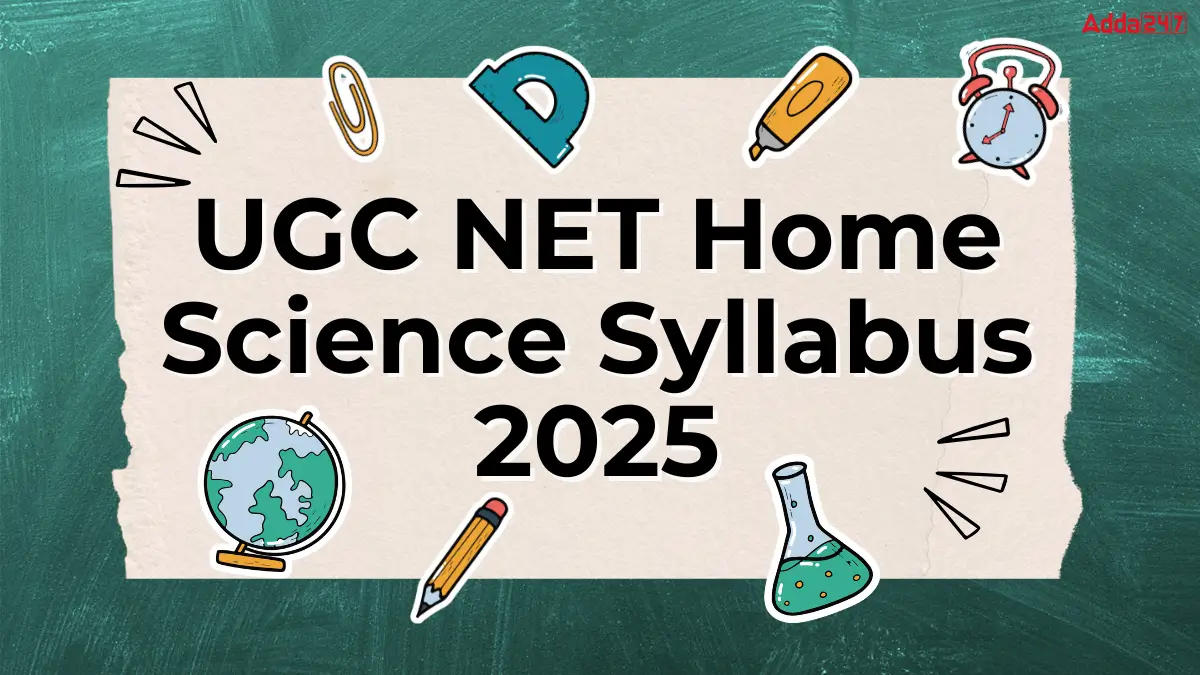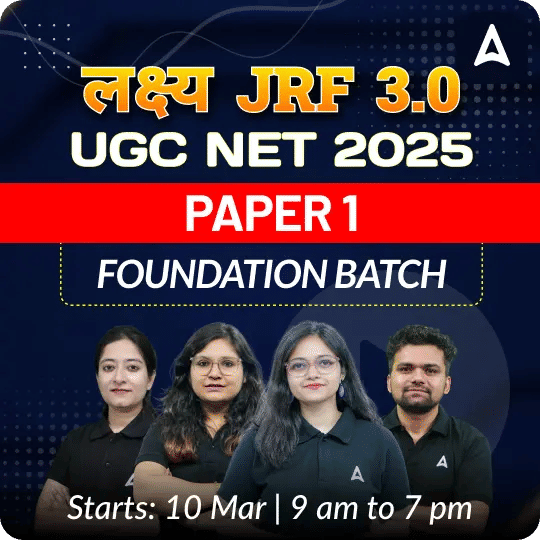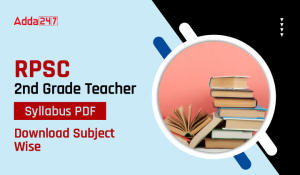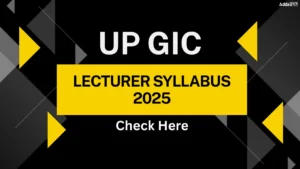Table of Contents
The official UGC NET Notification is released on the NTA website. Candidates preparing would be looking for the detailed syllabi of their specific subjects. For candidates with Home Science as a subject, The UGC NET Home Science Syllabus 2025 is available in the official notification of NET Exam 2025. The candidates who are preparing to appear for the NET Exam 2025 must be looking for the syllabi to understand the topics to cover. Aspirants can thoroughly go through the NET Home Science Syllabus 2025 to understand the UGC Exam, questions and Patterns in a better way. Here we are providing the UGC Syllabus and exam pattern for better information on the UGC NET Examination.
UGC NET Home Science Syllabus 2025: Overview
The UGC NET Exam 2025 will be conducted by the National Test Agency (NTA) in online mode at a national level. The candidates must refer to the following table for further details on UGC NET Home Science Syllabus 2025.
| UGC NET Home Science Syllabus 2025 | |
| Name of the Exam | University Grants Commission National Eligibility Test (UGC NET) |
| Conducting Body | National Testing Agency (NTA) |
| Exam Conducted in A Year | Twice a Year |
| Mode of Examination | Online |
| Type of Questions | Multiple Choice Questions (MCQs) |
| Number of Papers |
|
| Number of Questions | 150 |
| Time Duration | 3 hours |
| Negative Marking | No |
UGC NET Home Science Exam Pattern
The candidates must check out the following table under the UGC NET Home Science Exam Pattern in depth. The candidates must appear for two Papers- Paper I and Paper II for the UGC NET Exam Pattern for Home Science.
| UGC NET Home Science Exam Pattern | |||
| Paper | Marks | Number of Questions (All Are Compulsory) | Duration of Exam |
| Paper I | 100 | 50 | 03 hours |
| Paper II | 200 | 100 | |
UGC NET Home Science Marks Distribution
The UGC NET Home Science Exam will consist of two papers, with no intervals between them. Aspirants preparing for the exam must acquaint themselves with the marking scheme of both Paper 1 and Paper 2. The exam format for UGC NET Home Science will comprise Objective-Type Multiple-Choice Questions and have a time limit of three hours. Familiarizing themselves with the UGC NET Marking System for both papers can aid candidates in securing good scores.
| UGC NET Home Science Marking Scheme | |
| Correct Answer | 2 Marks |
| Incorrect/ Wrong Answer | No negative Marking |
| Unattempted Questions | NIL |
UGC NET Home Science Syllabus
The detailed UGC NET Home Science Syllabus is mentioned in the following table. The candidates must refer to the table below to comprehend the vastness of the UGC NET Home Science Syllabus.
| UGC NET Home Science Syllabus | |
| Units | Topics |
| Unit-I: Food Science And Food Service Management |
|
| Unit-II: Nutrition And Dietetics |
|
| Unit-III: Textiles |
|
| Unit-IV: Apparel Designing |
|
| Unit-V: Resource Management And Consumer Issues |
|
| Unit-VI: Housing And Interior Design |
|
| Unit-VII: Child/Human Development |
|
| Unit VIII: Family Studies |
|
| Unit-IX: Communication For Development |
|
| Unit-X: Extension Management And Community Development |
|
UGC NET Home Science Syllabus PDF
The UGC NET Home Science Syllabus PDF link is given in the following section. The candidates are required to click on the link below to access and download the UGC NET Home Science Syllabus PDF for future reference.
| UGC NET Home Science Syllabus PDF link | |
| UGC NET Home Science Syllabus | PDF link |
| UGC NET Home Science Syllabus – Hindi | Click Here |
| UGC NET Home Science Syllabus – English | Click Here |
Preparations Tips for UGC NET Home Science
Preparing for the UGC NET Home Science exam requires a systematic approach and a thorough understanding of the subject. Here are some tips to help you in your preparation:
- Understand the Syllabus: Familiarize yourself with the UGC NET Home Science syllabus. This will give you a clear idea of the topics you need to cover and help you create a study plan.
- Create a Study Plan: Develop a study plan that allocates time for each topic based on its weightage and your proficiency in that area. Make sure to include regular revision sessions to reinforce your learning.
- Gather Study Materials: Collect relevant study materials, including textbooks, reference books, previous years’ question papers, and online resources. Ensure that the materials cover the entire syllabus comprehensively.
- Focus on Core Concepts: Home Science is a multidisciplinary subject. Pay attention to the core concepts of each area, such as food and nutrition, human development, clothing and textiles, family resource management, etc. Understand the principles, theories, and practical applications associated with these concepts.
- Take Notes: While studying, make concise and organized notes. This will help you revise the key points quickly before the exam and serve as a handy reference during the preparation phase.
- Practice Previous Years Question Papers: Solving previous years’ question papers and sample papers is crucial. It will familiarize you with the exam pattern, time management, and the types of questions asked. Analyze your performance to identify weak areas that require more attention.
- Mock Tests and Time Management: Regularly take mock tests to assess your knowledge and improve your speed and accuracy. Practice answering questions within the allotted time frame to develop time management skills.
- Stay Updated with Current Affairs: Stay updated with the latest developments, research, and trends in the field of Home Science. Current affairs related to nutrition, health, consumer issues, and family welfare are important for the exam.
- Stay Healthy and Take Breaks: Maintain a healthy lifestyle during your preparation period. Take regular breaks, exercise, eat nutritious food, and get enough sleep. A healthy body and mind will enhance your concentration and productivity.
| UGC NET Related Articles | |
| UGC NET Notification 2025 | UGC NET Application Form 2025 |
| UGC NET Previous Year Question Paper | |




 RPSC 1st Grade Teachers Syllabus Subject...
RPSC 1st Grade Teachers Syllabus Subject...
 RPSC 2nd Grade Teacher Syllabus 2025, Do...
RPSC 2nd Grade Teacher Syllabus 2025, Do...
 UP GIC Lecturer Syllabus and Exam Patter...
UP GIC Lecturer Syllabus and Exam Patter...




